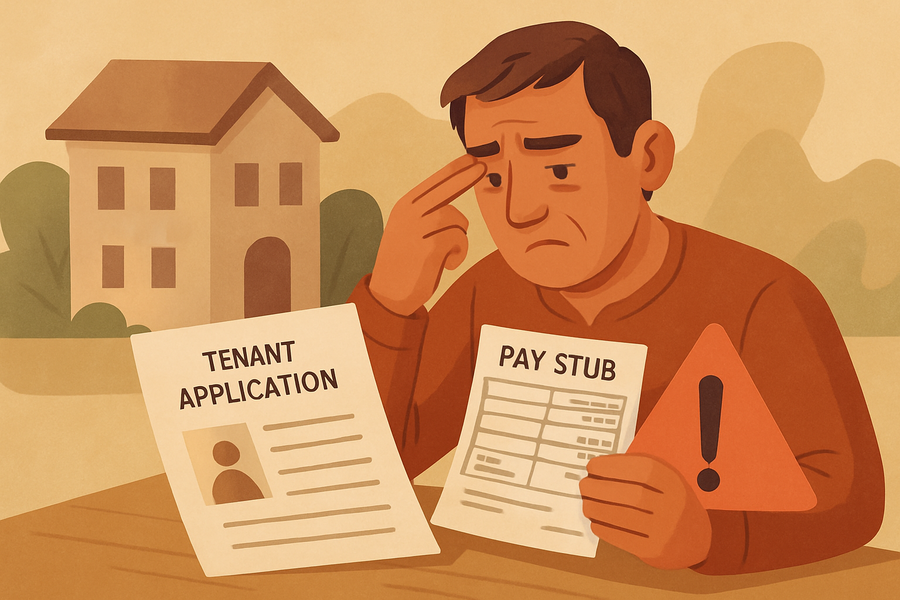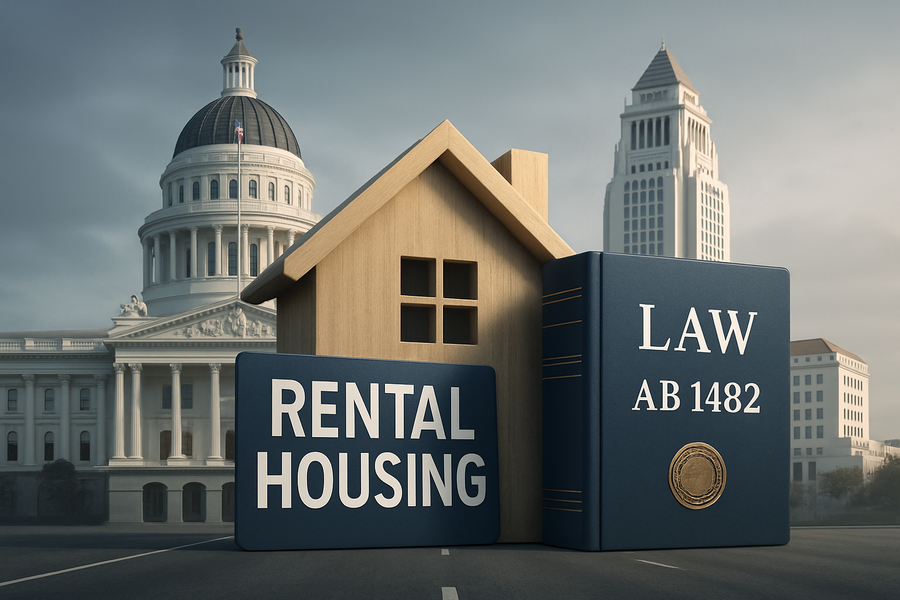What to do if the deposit doesn’t cover the damage or unpaid rent
 You did the right thing in collecting a security deposit. But what happens when that deposit isn’t enough to cover damages or unpaid rent?
You did the right thing in collecting a security deposit. But what happens when that deposit isn’t enough to cover damages or unpaid rent?
Most landlords collect a security deposit equal to one month’s rent at move-in time to cover any damages or unpaid rent at move-out time. But if there were extensive damages to the property or if the tenant left without paying last month’s rent and there were damages, you’re out some money, and that isn’t right.
You have options, though. Let’s explore them.
1. Communicate with your tenant
To legally withhold the security deposit, you must, in most states, send a letter to your tenant explaining why you are holding some or all the deposit. And you must do so within the time limit specified by your state. You can find your state law here.
Here’s a template for documenting and itemizing deductions from the security deposit.
Send this document or one like it to your tenant to let them know why you are withholding some or all the security deposit.
If they still owe you money beyond the security deposit, you’ll also need to send a demand letter.
2. Send a demand letter
Along with sending the itemized list, you need to send a letter asking for what your tenant owes you, called a “demand letter.”
Here’s a sample of a demand letter you can send a tenant who owes you money.
Sample demand letter (when your tenant owes you money)
[Date] [Tenant’s name] [Tenant’s address]Re: Return of security deposit
Dear [tenant’s name],
This letter concerns your security deposit in the amount of [amount of the total deposit] for the premises located at [address of the property] during your lease period of [start and end dates].
I will not be returning your security deposit for the premises located at [address of the property]. I am keeping the security deposit to cover the following:
[Include the itemized list from above.]The total cost to cover these damages is X.
Because the cost of damages exceeds the security deposit, you owe me X, which represents total damages minus the security deposit, payable immediately.
Please remit your balance to:
[Your name and address]Sincerely,
[Your name] [Your signature]3. Decide whether you should go to small claims court
You might receive the money owed to you after sending the demand letter. But if you don’t, send the letter a second time, attaching the first letter along with the second. If you still get nothing, you need to assess whether it’s worth your time and effort to take your tenant to small claims court.
Related: How to file a small claims lawsuit against your landlord or renter
The upside of going to small claims court is that you’ll likely win a judgment against your tenant if you can prove to the judge that your tenant does, indeed, owe you money. You get your money (theoretically anyway: see about being broke below), and you get satisfaction in that you were not taken advantage of.
But there are downsides to small claims court as well.
It’s time-consuming.
You need to prepare your case, organize the evidence, learn how to go to small claims court, and attend the hearing in the town in which your rental property is located.
Your tenant might be broke.
If you win a judgment, you still need to collect on that judgment. If your tenant has no money and no job, you won’t be able to collect.
You might not have the evidence.
If you didn’t keep proof, such as how your property looked at move-in time compared with how it looked when your tenant left, you might not be able to win in small claims court.
You pay filing fees and might lose pay by taking time off work.
Filing fees are usually less than $100 and you get them back if you win your case, but if you don’t have a strong case and lose, you need to be prepared to lose your filing fee. And depending on how valuable your time is, if you need to take the day off from work, you need to factor that cost in as well.
Your tenant could file a countersuit.
Whether your tenant has a case against you or not, they could file a countersuit. If you haven’t done everything by the book, you actually might go home owing your tenant money.
But if you can say “yes” to the following, you should seriously consider going to small claims court:
- Your tenant owes you a significant sum of money.
- You have proof of what you are owed.
- Your ex-tenant has a job or a source of income.
- You have the time and energy for small claims court.
If you don’t think you’ll get much or any money, you might want to write this off as a loss and move on.
Try to prevent excessive damages in the first place
It’s good to know what to do if you’re owed money, but it’s even better to prevent this situation from happening in the first place. Here are three measures to take to help avoid being out any money.
1. Conduct regular inspections
One way to help prevent excessive damage to your rental property is to perform periodic inspections. It’s important to strike the right balance between keeping tabs on what’s going on with your rental property and not becoming intrusive to your tenants. It’s typical to inspect your property at least once a year. Some landlords do this twice a year or even quarterly.
Related: How Often Can a Landlord Inspect a Rental Property?
If you notice a problem, such as a tenant sneaking in a pet or an extra tenant or two, or if you notice a dying lawn or a water stain on the ceiling, you can nip the problem in the bud before a small issue becomes an expensive problem.
2. Have a walk-through a month before move-out
The time to do a walk-through is when the tenant is moving out or immediately after they move out. (You do that, right?) A walk-through lets you know whether you will need to withhold any of the security deposit.
But you can also do a walk-through about a month before your tenant moves out. At that time, you can go over with your tenant any items that need fixing. By doing the walk-through a month in advance, you give your tenant a chance to fix any problems so they can get all or most of their deposit back.
3. Screen tenants
A great way to help ensure you don’t lose money is to get good tenants in your property in the first place. And the way to do that is by tenant screening. Of course, screening doesn’t guarantee a perfect landlord/tenant relationship, but it helps immensely.
I use Cozy to screen tenants. I require a background and credit check on all applicants. The applicants pay directly to Cozy for this service, and I receive the information to review, which helps me decide whom to rent my properties to.
Bottom line
Making repairs because of damages tenants cause and being out rent for a month or more from a tenant who stiffed you are risks landlords take. Knowing what to do if this happens to you and helping prevent this from happening in the first place lessens your risk of losing money.







